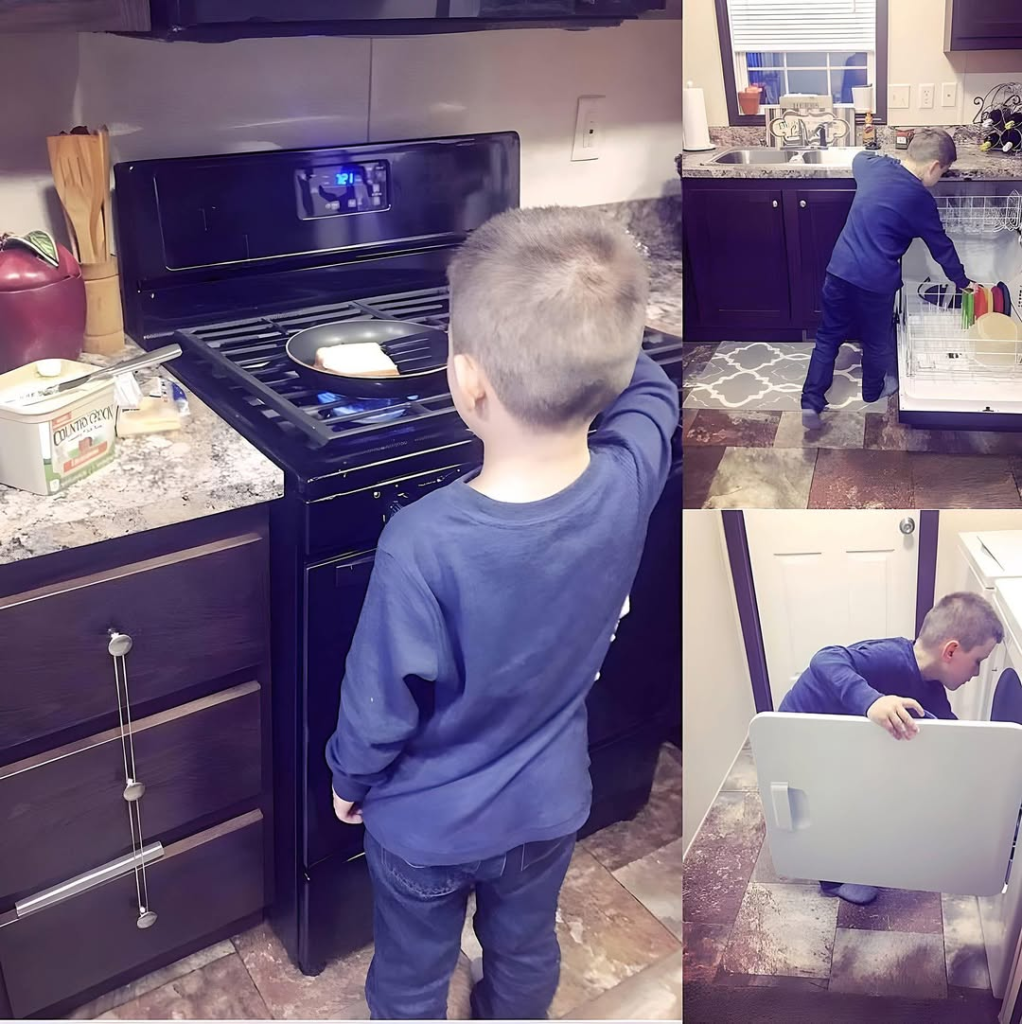I Teach My Son to Cook & Do Household Chores — Because Home Doesn’t Care Who You Are
When people hear me say I expect my son to cook, sweep, mop, do laundry, fix things, and carry his share of the home’s load, they sometimes raise an eyebrow. “Why put that burden on a child?” they ask. Or: “Shouldn’t he just do what boys do, and she’ll handle the house?” To me, those questions are part of the problem.
I teach him all of this for simple reasons. Because home is not a gendered domain. Because life doesn’t pause for stereotypes. Because I want him, as he grows, to carry dignity in every aspect of being human — and that includes knowing how to care for the home and those within it.
Home Is for Everyone — Not Just One Role
In many cultures, women are expected to handle nearly all domestic tasks: cooking, cleaning, laundry, tending to children, ironing, organizing, and more. Meanwhile, boys are taught that their place is elsewhere — that the world outside demands their efforts, while inside the home they need only rest and be served.
But what message does that send to a child? That caring for home and family is someone else’s job. That certain tasks are beneath you if your identity looks one way. That you can escape responsibility because of your gender.
I refuse to let those messages take root in my son.

When I ask him to help chop vegetables, I tell him: “Don’t wait for someone else to make your dinner when you get hungry. Be able to feed yourself.” When I hand him a rag and ask him to wipe a surface, I teach him that orderliness matters. When I have him empty the trash or gather recycling, I remind him that little acts add up. When the laundry piles up, he learns that garments don’t wash themselves.
Each chore is a lesson in humility, care, responsibility, and shared life. Each mistake he makes — overcooking, spilling, forgetting — teaches that trying is more important than perfection.
Preparing for a Life of Independence
I often think ahead: one day, he might live on his own. He might even be a man starting out, or a single dad, or someone who never has a spouse. What then? Will he survive off takeout and frozen meals? Will he never have known how to clean a bathroom or fold a shirt?
By teaching him these skills now, I’m investing in his future self. The one who doesn’t depend on others to fill in the gaps. The one who moves through life with competence and integrity.
It’s not just about chores. It’s about empowerment.
Breaking Stereotypes, Building Values
I live in a time when many adults complain they were never taught basic life skills in school: how to cook, manage a budget, tie a tie, do laundry, pay taxes. And yet we expect them to step into grown-up life seamlessly. That’s unfair.
So when I show my son how to sauté vegetables, I’m not just teaching him dinner. I’m telling him: you belong in this house. You belong in your life. You can care for others and care for your space.
When I teach him that cleaning up after yourself isn’t optional but respectful, I’m saying: the world doesn’t owe you a spotless floor. You step up.
And because of that, he will never grow into a man who believes he shouldn’t cook or mop. He’ll never feel entitled to be waited on. He’ll understand partnership, empathy, shared responsibility.
I want him to be the kind of man who can finish changing a tire, then step inside and stir the pot. Who can come home, tired, and still take care of his space. Who doesn’t see household work as below him, but as part of a life lived well.
Lessons for Us All
If you’re reading this and thinking: “But isn’t he still a child? Let him be free to play.” Yes — childhood must be honored. But childhood can include seeds of growth. We don’t need to overload them, but we can let them practice contributions. Small tasks, consistency, trust.
And to the people who believe some work is inherently “women’s work” or “men’s work,” I invite you to observe. Watch a child handed a mop, or a spatula, or a laundry basket: most times, they accept, experiment, laugh, and learn. They don’t need the weight of tradition dictating their possible contributions.
My hope is that by the time my son is grown, he will never question whether he should help. He will simply do. And in doing, he will carry respect for the home, for others, and for himself.
Because to me, teaching him how to cook or do chores is not about the tasks. It’s about character. It’s about partnership. It’s about bringing up someone capable, caring, and aware — someone ready to live fully, in every corner of life.